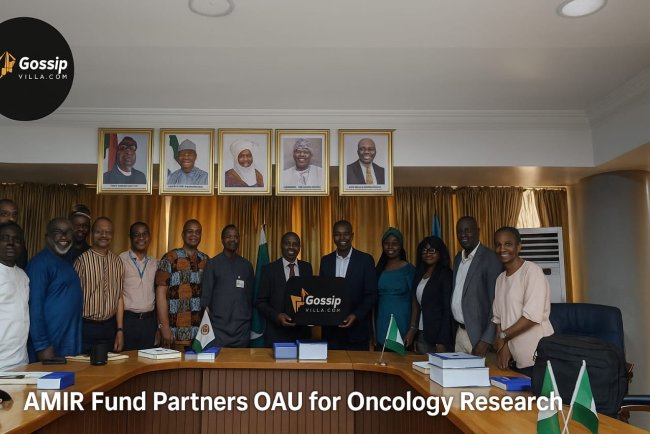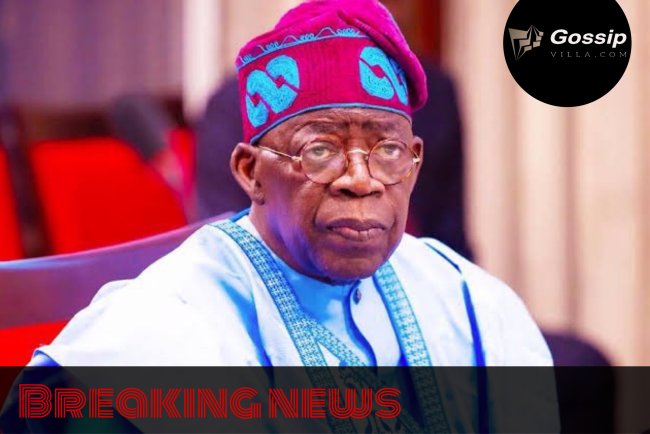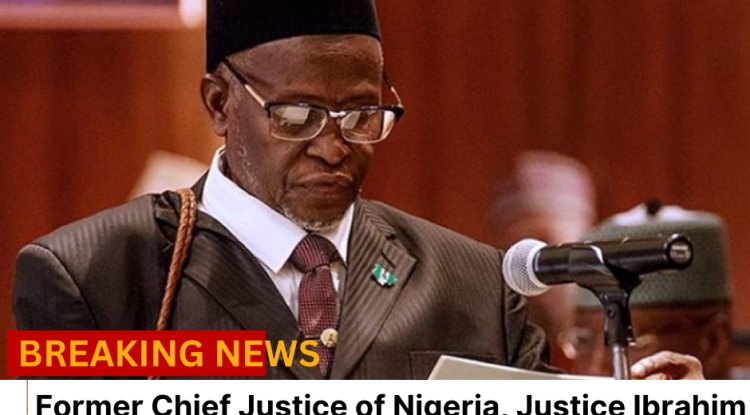Senator Ned Nwoko’s Two-Point Peace Plan for the South-East: Release of Nnamdi Kanu and Creation of a Sixth State
Senator Ned Nwoko urges Tinubu to release Nnamdi Kanu and create Anioma as Southeast’s 6th state to end unrest, restore peace, and address Igbo marginalization.
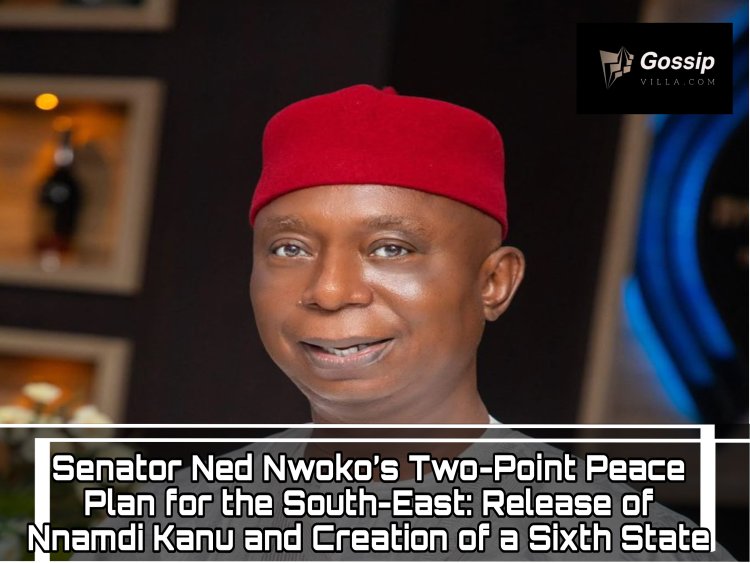
Senator Ned Nwoko’s Two-Point Peace Plan for the South-East: Release of Nnamdi Kanu and Creation of a Sixth State
In a recent media appearance, Senator Ned Nwoko, representing the Delta North senatorial district, laid out what he described as a “two-point plan” to restore peace in Nigeria’s South-East geopolitical zone. His proposal centres on two key measures: the unconditional release of Nnamdi Kanu, leader of the Indigenous People of Biafra (IPOB), and the creation of a new state, the proposed Anioma State which would become the sixth state in the South-East.
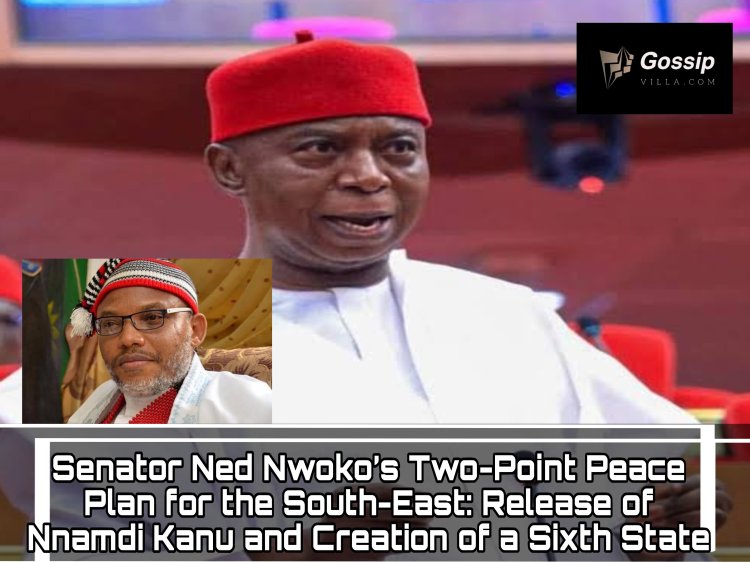
Why These Two Measures?
According to Senator Nwoko, the lingering unrest in the South-East is rooted in what he calls “perceived injustice” and “marginalisation” by successive federal administrations. He argues that the region’s agitation, including calls for secession, is fuelled by both structural imbalances (such as the number of states) and individual flashpoints (such as the detention of Nnamdi Kanu).
On the one hand, the South-East currently has five states (Abia, Anambra, Ebonyi, Enugu and Imo), whereas many other geopolitical zones in Nigeria have six or more. Senator Nwoko contends that this imbalance contributes to a sense of exclusion. He therefore champions the creation of Anioma State carved out of existing Delta State as a means to raise the region to six states and thereby boost inclusion and symbolic recognition.
On the other hand, the prolonged detention of Nnamdi Kanu has become a highly charged symbol. Nwoko described Kanu’s incarceration as “unjust” and said it remains a major driver of unrest in the region. “By the time you do these two things, I am almost certain that peace will return to the South-East,” he stated.
The Proposed Anioma State: What, Why & How?
The proposal for Anioma State would see the carve-out of part of Delta State (the Anioma region) into a separate state, aligned with the South-East’s cultural and linguistic identity. Senator Nwoko, among other proponents, argues that:
• Anioma is culturally Igbo and should logically be part of the South-East zone.
• The creation would correct a federal structural imbalance: other zones have more states; the South-East currently has only five. • The bill for a sixth state in the zone has already received tentative endorsement: the joint constitution-review committee of the National Assembly approved creation of six new states (one per zone) and the Anioma bill is among those under consideration.
Process and hurdles:
Creating a new state in Nigeria is not just symbolic: it requires constitutional steps. According to Section 8 of the Nigerian Constitution, the process includes: a formal request signed by a super-majority of elected representatives from the area, a referendum in the area, approval by a majority of state Houses of Assembly, and finally approval by two-thirds of each chamber of the National Assembly.
Senator Nwoko expressed confidence that Anioma will be selected among several proposals (he said there are about seven from the South-East region) and that President Bola Tinubu might give his assent.
The Nnamdi Kanu Question: Release or Political Solution?
Nnamdi Kanu has been in the custody of the Department of State Services (DSS) since his re-arrest in June 2021, and is facing terrorism-related charges at the Federal High Court in Abuja.
Senator Nwoko argues that rather than persisting primarily with legal and military responses, there is a political dimension to resolving unrest in the South‐East. He holds that Kanu’s detention is a flashpoint, and that his release could serve as a gesture of reconciliation, helping to calm agitations.
However, such a proposal remains controversial. Critics argue that releasing Kanu without addressing structural issues might not guarantee peace, and that the legal case has to run its course to avoid undermining rule of law. The interplay between justice, security and political accommodation remains complex.
Implications & Possible Risks
For peace and stability:
If implemented, the twin moves might boost the feeling of inclusion for the South-East and reduce grievances tied to marginalisation. The creation of Anioma State might bring more local governance, closer administration, job creation, and political symbolism. The release of Kanu might remove a potent grievance and reduce separatist mobilisation.
For federal structure and precedent:
Creating a sixth state in the South-East could trigger other agitations for new states in other regions, potentially increasing demands for state creation and shifting resource allocation. The Senate committee’s endorsement of six new states (one in each zone) suggests the process may gain traction.
For legal and security issues:
Releasing Kanu could be perceived as rewarding secessionist agitation, possibly emboldening actors seeking independence. On the other hand, continued detention without a meaningful political settlement may sustain unrest.
Conclusion
Senator Ned Nwoko’s proposition is bold and multifaceted: merging a political/legal dimension (the release of Nnamdi Kanu) with structural reform (creation of Anioma State). Whether it delivers peace to the South-East will depend on implementation and the broader willingness of the federal government to engage with the region’s historical grievances. For the moment, it signals a shift away from purely security-based responses toward a more political and constitutional approach in seeking stability.
Sources
What's Your Reaction?







